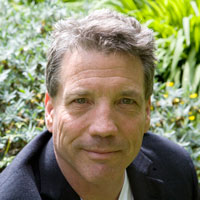
I was thinking the other day that I spend way too much time thinking.
I got to that conclusion by contemplating the purpose of my life—the purpose of our life.
I believe it is, in part, to learn how to respond to conflict and adversity in a conscious way.
We often have to deal with circumstances that we don’t like, and as a result we suffer. We become stressed and anxious because we don’t know what to do. When we don’t know how to properly respond to these conflicts, it only makes the problem worse because we beat ourselves up because we don’t know what to do.
This is what I call mental masturbation.
We think, then we think about thinking, then we think that we shouldn’t be thinking…
Thoughts arise from the ego and aren’t real. In fact, the ego isn’t real either, it is just a term we use to describe our mind. Our mind isn’t real either, it is just the term we use to refer to our thinking process. Kind of gives me a headache.
I am in the process of redefining myself, starting over, and beginning a new career. I often don’t know what to do to speed up the process, I want to be busy and productive. The universe seems to be telling me to slow down—don’t be in such a hurry.
That would be great except for that one detail that seems to grab most of us by the ass: money. As a result, from time to time I wake up feeling anxious and afraid, and I suffer.
Thoughts are not real, no matter how attached we become to them. We are not our thoughts. When we can detach from our thoughts, we can let go of the emotions they create and stop suffering. When a thought arises, we need to be able to look at it as a thought and nothing more.
It is an illusion, a neuron flashing on and off in our brain. It helps me to compare a thought to a cloud in the sky floating across the blue sky. The blue sky is my true self, the observer—blissful awareness. The clouds that separate the mind from the blue sky can be wispy puffs or hurricane forces depending on the nature of the thought. In all cases the thought is not the sky. When I do not allow myself to become attached to the thought, eventually it will float away like a cloud.
The conscious or mindful way to deal with those thoughts that cause stress and anxiety is to contemplate those thoughts that are causing us suffering and love them. What I mean is that the thought is not the problem.
We have over 60,000 thoughts a day according to scientists. When we resist a thought, we bog down, our mind gets stuck and we start churning our mental wheels trying to fix it. The thought might be that we are unworthy, unlovable, stupid or variations on those themes. The thought might be about how others are compared to us. The thought may be about how life is unfair or that God has abandoned us.
We become attached to these thoughts and they become engrained in our subconscious. As long as they stay in our mind, we will suffer. When they surface in our conscious mind, we become enmeshed in the emotions that these thoughts cause and forget to deal with the thought itself. We can’t stop suffering by hating the suffering. This response only causes more suffering.
Whenever I have a thoughts that causes suffering I can either obsess over it or love it and move on. When I obsess over it, it will stay in my consciousness for much longer, causing suffering like a radioactive isotope buried in my mind. The thoughts that we focus on become our reality.
One way to look at it is to compare these kinds of destructive, or toxic thoughts to the kinds of people we might see as toxic. You know the ones I am talking about, the ones that are always gossiping, criticizing, complaining and being negative. If you hang around them long enough, get involved with them, they start to influence you or at least cause you to react. The same goes for thoughts. Let them be, you can’t do much to change them always but just don’t invite them to hang around. Don’t indulge them.
When we become aware that we are having “one of those thoughts”, it is important to not resist. As the old saying goes, what we resist persists, so just watch it go.
Many times such thoughts are the result of some memory or subconscious belief that has not been dealt with. If we are really brave, we can dig deeper and discover where that thought came from. What part of ourselves are we rejecting? What are we so afraid of? And then accept that part of ourselves as being human and love it.
I believe most damaging thoughts arise from fear of the future and if we can ask ourselves, and answer honestly, “What about the future am I afraid of?” we can deal with them a whole lot better.
Mastery is not eliminating these thoughts or suppressing them, mastery is observing our mental and emotional response to a thought. In our simple observation of our own reaction, the reaction itself loses its power over us and the clouds pass.
And in the process we learn a little more about ourselves, so instead of them being “toxic,” these thoughts can become stepping stones and constant reminders, whenever they do crop up, of a more mindful life—one that is always available to us.
~
“The most fundamental aggression to ourselves, the most fundamental harm we can do to ourselves, is to remain ignorant by not having the courage and the respect to look at ourselves honestly and gently.” ~ Pema Chödrön
~
Author: James Robinson
Editor: Khara-Jade Warren
Image: Craig Sunter/ Flickr

 Share on bsky
Share on bsky




Read 18 comments and reply